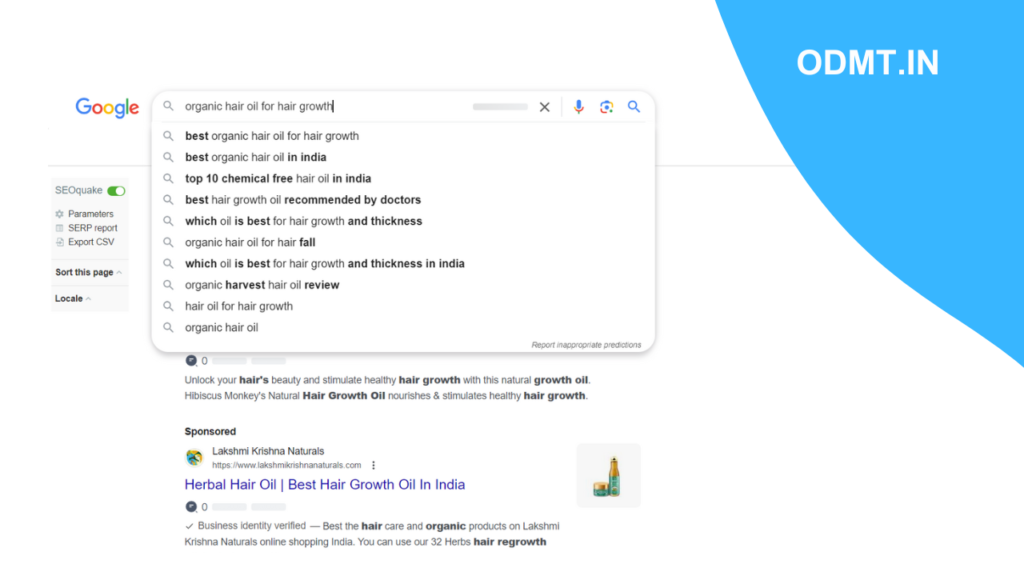WHAT IS KEYWORD RESEARCH:
Keyword research is the process of finding and analyzing the words and phrases that people type into search engines like Google. It helps in understanding what topics users are searching for and how frequently those terms are used. This research is crucial for SEO (Search Engine Optimization) because it helps website owners create content that matches user intent and ranks higher in search results.
Why Do We Do Keyword Research?
1. To Understand User Intent
- Keyword research helps identify what users are searching for, whether they want information, to buy something, or to compare options.
- Knowing search intent (Informational, Navigational, Transactional, or Commercial) allows for creating relevant content.
2. To Improve SEO Rankings
- Using the right keywords increases the chances of ranking higher on search engines.
- High-ranking pages get more organic traffic (non-paid visitors).
3. To Find Content Opportunities
- Helps discover trending topics and new content ideas.
- Identifies low-competition keywords that are easier to rank for.
4. To Increase Website Traffic
- Using relevant keywords attracts more visitors from search engines.
- Targeting the right keywords ensures quality traffic (people genuinely interested in the topic).
5. To Outrank Competitors
- Researching competitor keywords helps in understanding their strategies.
- Finding gaps in competitor content allows websites to create better and more valuable content.

How to Do Keyword Research?
Step 1: Identify Your Niche and Goals
- Define your business, industry, or topic.
- Understand what products, services, or information you want to rank for.
Step 2: Brainstorm Seed Keywords
- Seed keywords are the basic terms related to your topic.
- Example for an SEO website:
- SEO tools
- Keyword research
- Link building
- Technical SEO
Step 3: Use Keyword Research Tools
- Use tools to find keyword variations, search volume, and competition.
- Popular keyword research tools:
- Google Keyword Planner (Free)
- Ahrefs (Paid)
- SEMrush (Paid)
- Ubersuggest (Freemium)
- Google Search Console (Free)
- AnswerThePublic (Freemium)
Step 4: Analyze Search Volume and Competition
- Search Volume: How many people search for the keyword monthly.
- Keyword Difficulty: How hard it is to rank for the keyword (high, medium, or low).
- CPC (Cost Per Click): If a keyword has high CPC, it’s valuable for ads and businesses.
💡 Tip:
- Target low-competition keywords with moderate-to-high search volume for better chances of ranking.
- Example: Instead of targeting “SEO” (high competition), target “best SEO tools for beginners” (low competition, specific intent).
Step 5: Check Search Intent
- Informational: “What is SEO?” (People want information).
- Navigational: “Ahrefs login” (People want a specific website).
- Transactional: “Buy SEO tools” (People want to purchase).
- Commercial: “Best SEO tools comparison” (People are researching before buying).
✅ Match your content type with search intent to rank better.
Step 6: Find Long-Tail Keywords
- Long-tail keywords are specific, longer phrases with lower competition but higher conversion rates.
- Example:
- Short-tail keyword: “SEO” (high competition).
- Long-tail keyword: “best SEO techniques for small businesses” (low competition, more targeted).
✅ Long-tail keywords attract visitors who are closer to making a decision.
Step 7: Analyze Competitor Keywords
- Search for competitors’ websites and check what keywords they rank for.
- Tools like Ahrefs, SEMrush, and Ubersuggest can help find competitor keywords.
- Identify gaps where you can rank higher with better content.
Step 8: Organize and Prioritize Keywords
- Group keywords into categories for blog posts, product pages, or landing pages.
- Prioritize based on:
- Search volume (High is better).
- Competition (Low or Medium is easier to rank for).
- Relevance (How closely it matches your business).
Step 9: Optimize Content for Keywords
- Place keywords naturally in:
- Title tags
- Headings (H1, H2, H3, etc.)
- Meta descriptions
- URL structure
- First 100 words of content
- Alt text for images
🚫 Avoid keyword stuffing! (Overusing keywords unnaturally can harm rankings).
Step 10: Track and Adjust Your Strategy
- Use Google Search Console and Google Analytics to track keyword performance.
- Update and optimize old content to maintain rankings.
- Adjust based on new keyword trends and search engine updates.
Conclusion
Keyword research is a crucial step in SEO that helps websites rank higher, attract more visitors, and compete effectively. By understanding user intent, finding the right keywords, and optimizing content, businesses and bloggers can drive more traffic and improve their online visibility. Regular keyword research ensures ongoing success in search engine rankings! 🚀
